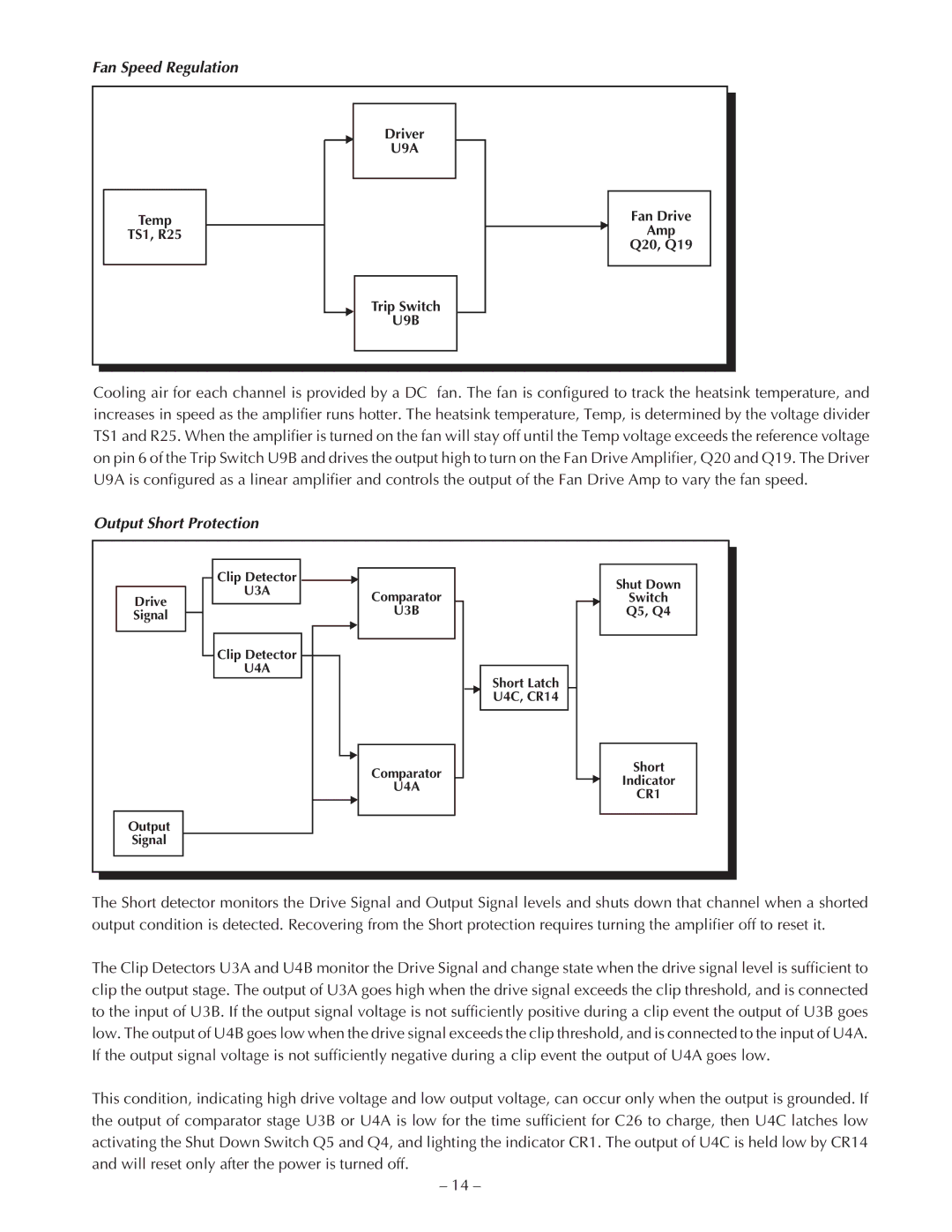P7000 specifications
The Hafler P7000 is a professional power amplifier renowned for its robust performance and reliability in live sound and studio applications. A cornerstone of the Hafler brand, the P7000 embodies advanced technology and engineering, making it a popular choice among audio professionals.One of the standout features of the P7000 is its high power output. It delivers up to 700 watts per channel at 4 ohms, providing ample headroom for demanding audio environments. This powerful output makes it suitable for driving large loudspeakers or multiple speaker systems, ensuring clear and dynamic sound reproduction even at high volumes.
The P7000 utilizes a class AB amplifier design, combining the benefits of class A and class B architecture. This design choice ensures low distortion levels while maintaining efficient operation. As a result, users can expect a warm and natural sound with low signal degradation, making the amplifier ideal for critical listening environments.
In terms of build quality, the Hafler P7000 is constructed with durability in mind. The chassis is made from robust materials that can withstand the rigors of frequent transport and use in various settings, from professional studios to live concert venues. Additionally, the amplifier features a well-ventilated design, minimizing overheating and ensuring reliability during extended operation.
The P7000 also includes advanced protection circuitry to safeguard against overload and short circuits. This feature not only protects the amplifier itself but also the connected speakers, providing peace of mind during high-energy performances. Furthermore, the amplifier incorporates a soft start circuit, which gradually ramps up power to the speakers, preventing sudden jolts that could cause speaker damage.
Connectivity is another key aspect of the Hafler P7000. It offers a variety of input options, including XLR and 1/4" TRS connectors, making it compatible with numerous audio sources and easy to integrate into any existing setup. Balanced inputs help reduce noise and interference, ensuring clean signal transfer over long cable runs.
With its combination of powerful output, reliable performance, and versatile connectivity, the Hafler P7000 stands out as a professional-grade amplifier. Whether used in a studio setting or live sound application, it provides audio professionals with the tools they need to achieve exceptional sound quality and consistency.

